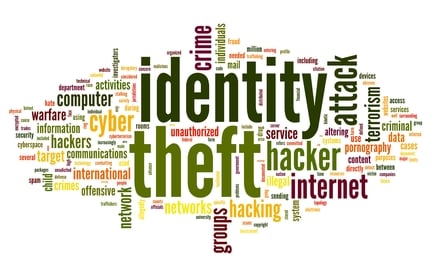


 FraudFighter Products offers solutions to organizations that are concerned with verification of individuals’ identities. These solutions enable real-time authentication of the ID document that is presented as proof of who a person is.
FraudFighter Products offers solutions to organizations that are concerned with verification of individuals’ identities. These solutions enable real-time authentication of the ID document that is presented as proof of who a person is.
Many organizations are concerned with ensuring they understand who an individual is. Generally speaking, the underlying reason is to determine whether access to something ought to be granted. Whether it be access to a building, a country, a safety deposit box, or a bank account, organizations charged with protecting sensitive assets are increasingly aware that identity theft is pandemic.
The benefits to society from this focus on identity authentication falls into several categories. For safety and national security purposes, ID authentication provides a layer of protection from the anonymous attack. Access to facilities prone to terrorist attack, such as nuclear power generators, chemical plants and research facilities should require a high-threshold of certainty that a person is who they claim to be prior to granting entrance.
Asset owners, that is, owners of bank deposits, real estate, investment accounts, and other properties appreciate the restricted access to their accumulated wealth and the protection it affords from potential theft. Banks and other financial institutions charged with managing such assets not only need to offer such protection to their customers, but also must prove their compliance with a slew of federal and state laws requiring that, at a minimum, they “know” who their customer is before certain types of transactions are allowed to occur. Examples include opening a new bank account, transferring money between banks, wiring funds overseas, purchasing money orders and applying for credit.
Human Resources departments in organizations hiring individuals also are obligated legally to verify identity of individuals that are given employment. US Federal Law requires this, as do numerous states.
Many other applications for Identity Authentication are in the common best-interest of both the organization conducting the authentication, and the individual who is being verified. Credit card usage should include an authentication of the person whose credit is being used. Medical treatment covered by insurance should integrate identity verification to make sure that the person is, in fact, covered under whatever medical insurance, and also to ensure that sensitive records are kept private and only available to those who should have access.

In the United States, it is an extraordinarily complex test to determine whether someone is who they say they are.
With more than 50 different states and territories, each a “credentialing entity”, along with numerous other organizations, ranging from the military, to law enforcement, merchant marines, government research facilities, even state and federal lawmakers each have unique ID documents. All told, more than 1,200 different designs are currently valid and acceptable within the United States for different applications in which individual identification may be required.
In short, it is impossible to believe that any single human being could ever be relied upon to authenticate such a wide variety of documents.
For this reason, it is not only reasonable, but in the context of the current environment in which massive data breaches and the prefessionalization of the forged IDentity Document industry have led to a very genuine epidemic in fraudulent ID documents, it is becoming a necessity to consider how your organization authenticates identities, and to evaluate the available solutions that will enable your frontline employees to protect your company's - and your customers' - assets.


.png)
